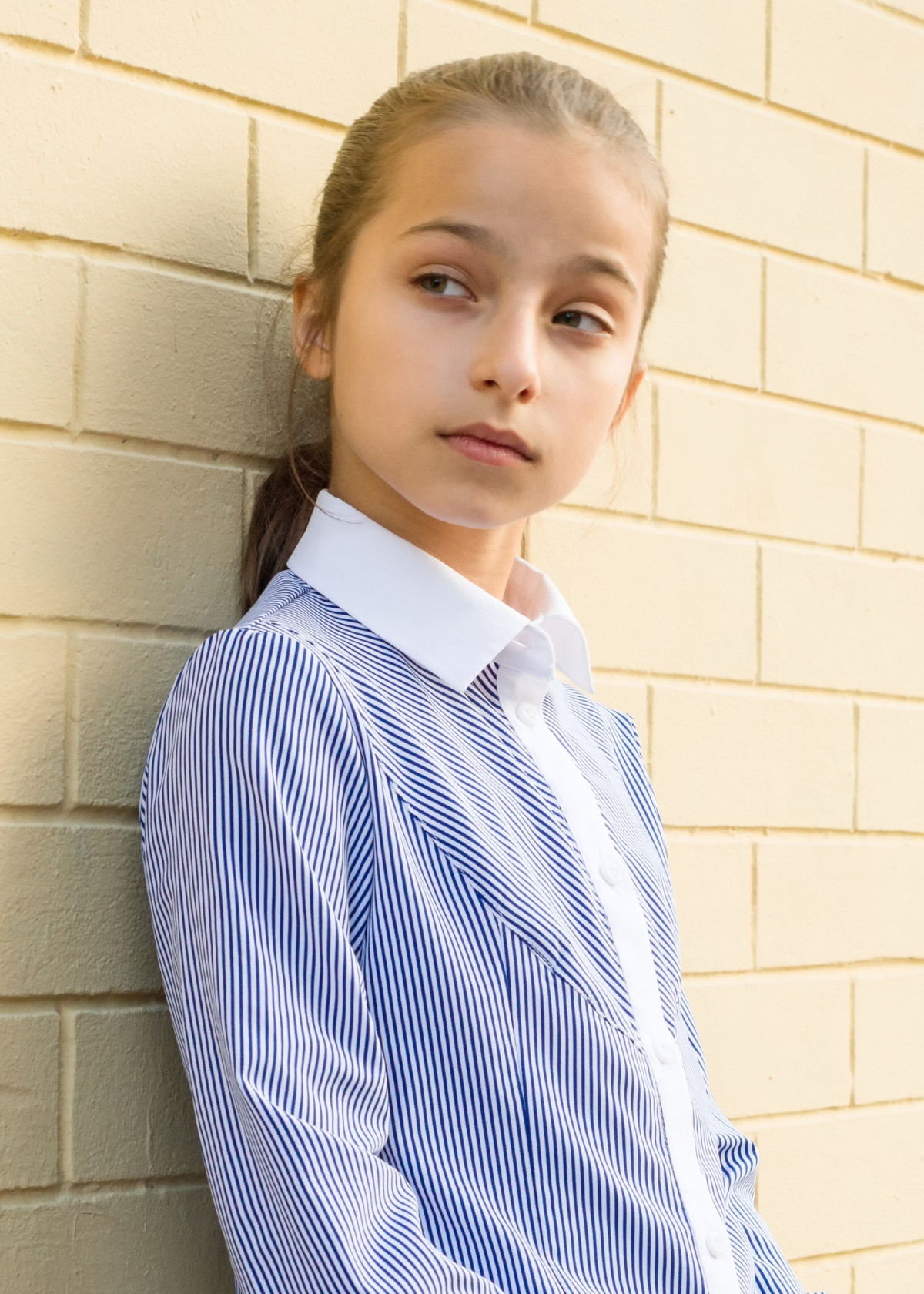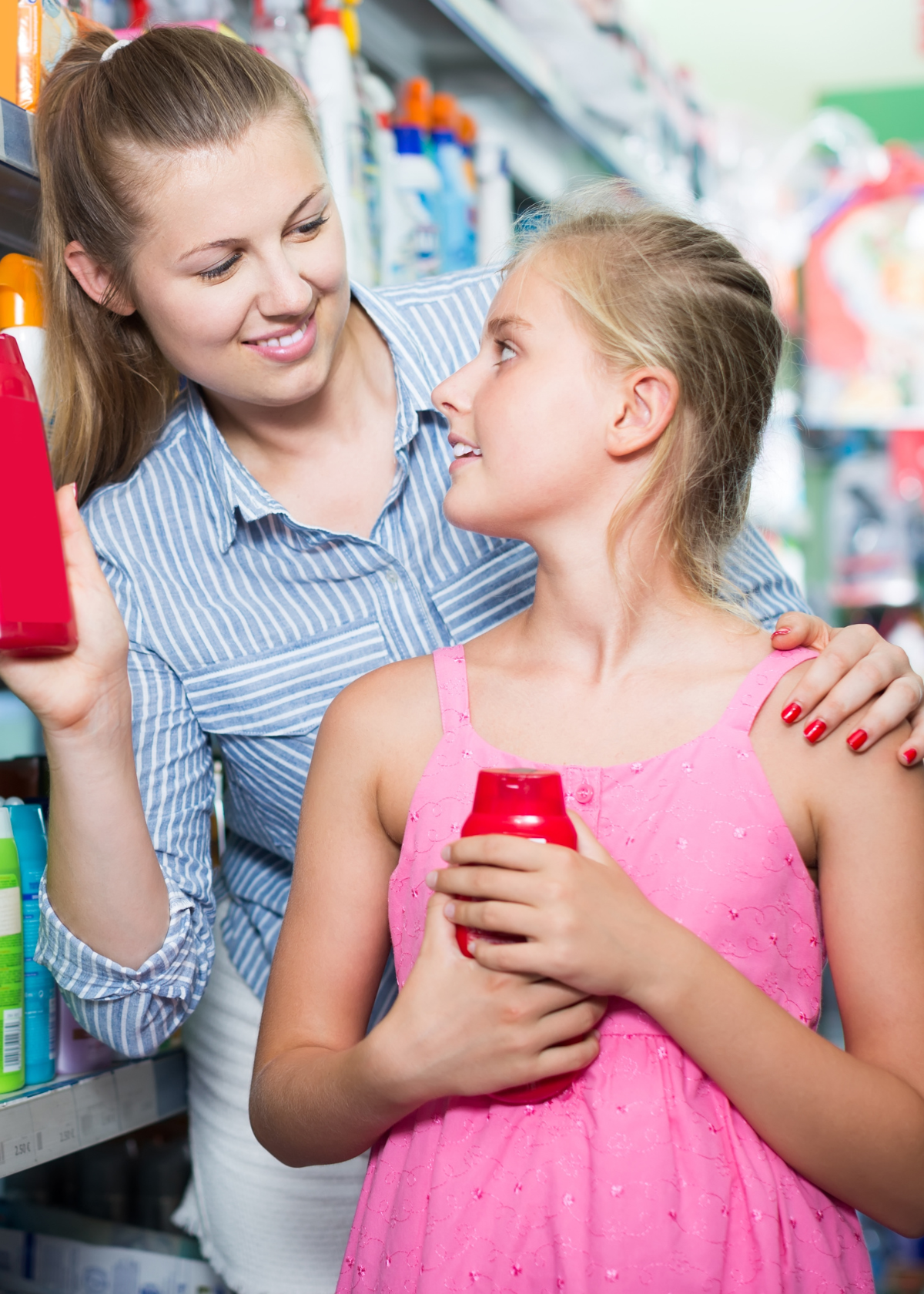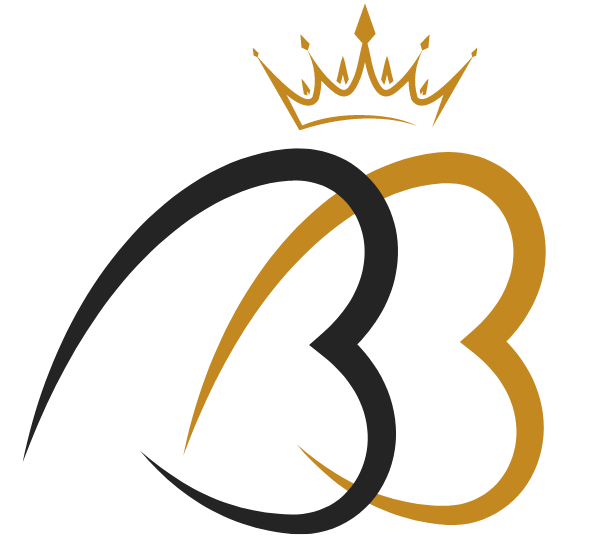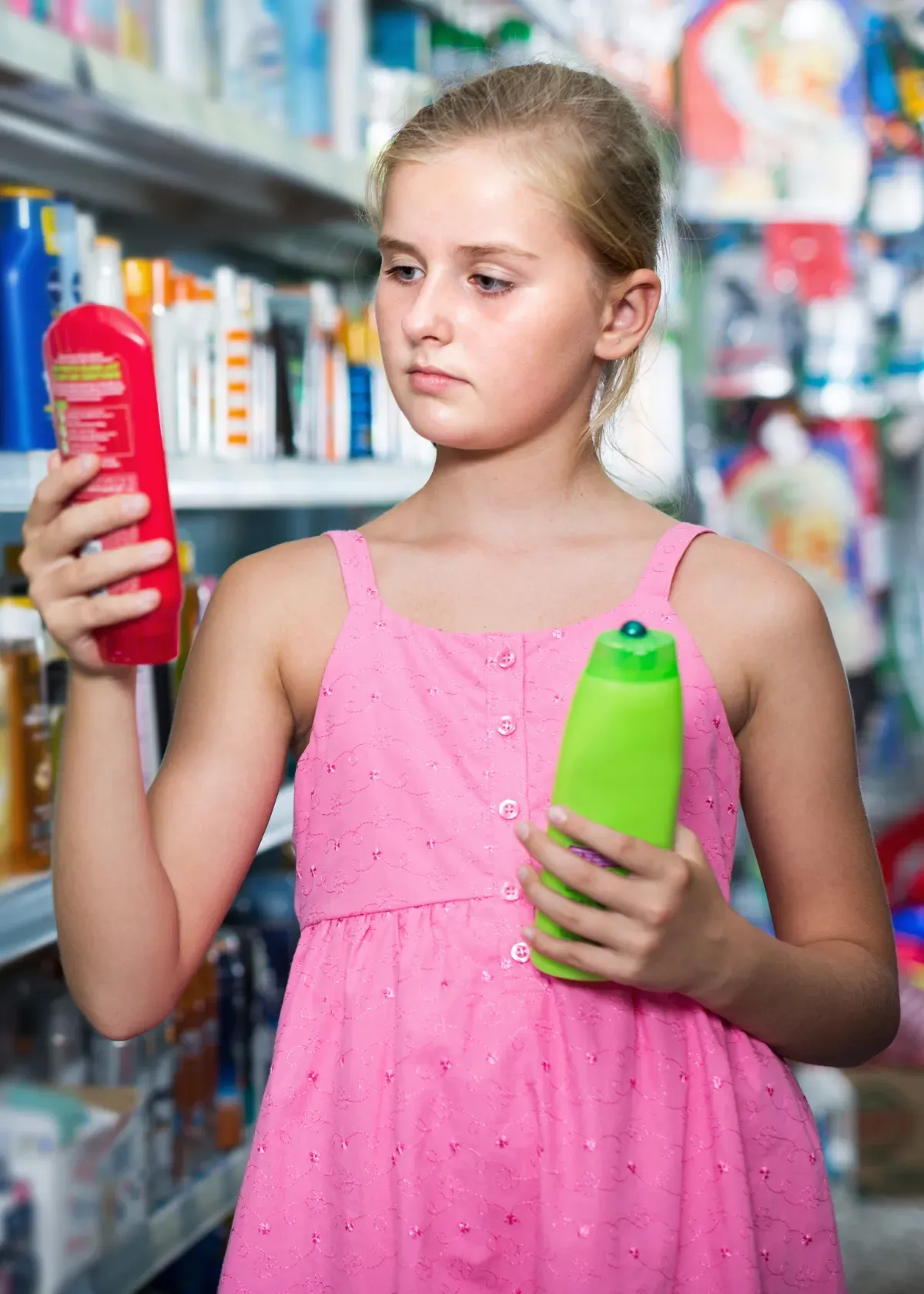Navigating the waters of childhood care often raises questions like "What age can a child use normal shampoo?" Did you know that there isn't one catch-all answer for this, as it largely depends on the individual needs and development of your child?
In this article, we will guide you through understanding when and why to make that switch from baby to regular shampoo.
Let's dive in and explore how to ensure your child’s bathing routine is both safe and effective.
Factors to Consider When Switching to Normal Shampoo
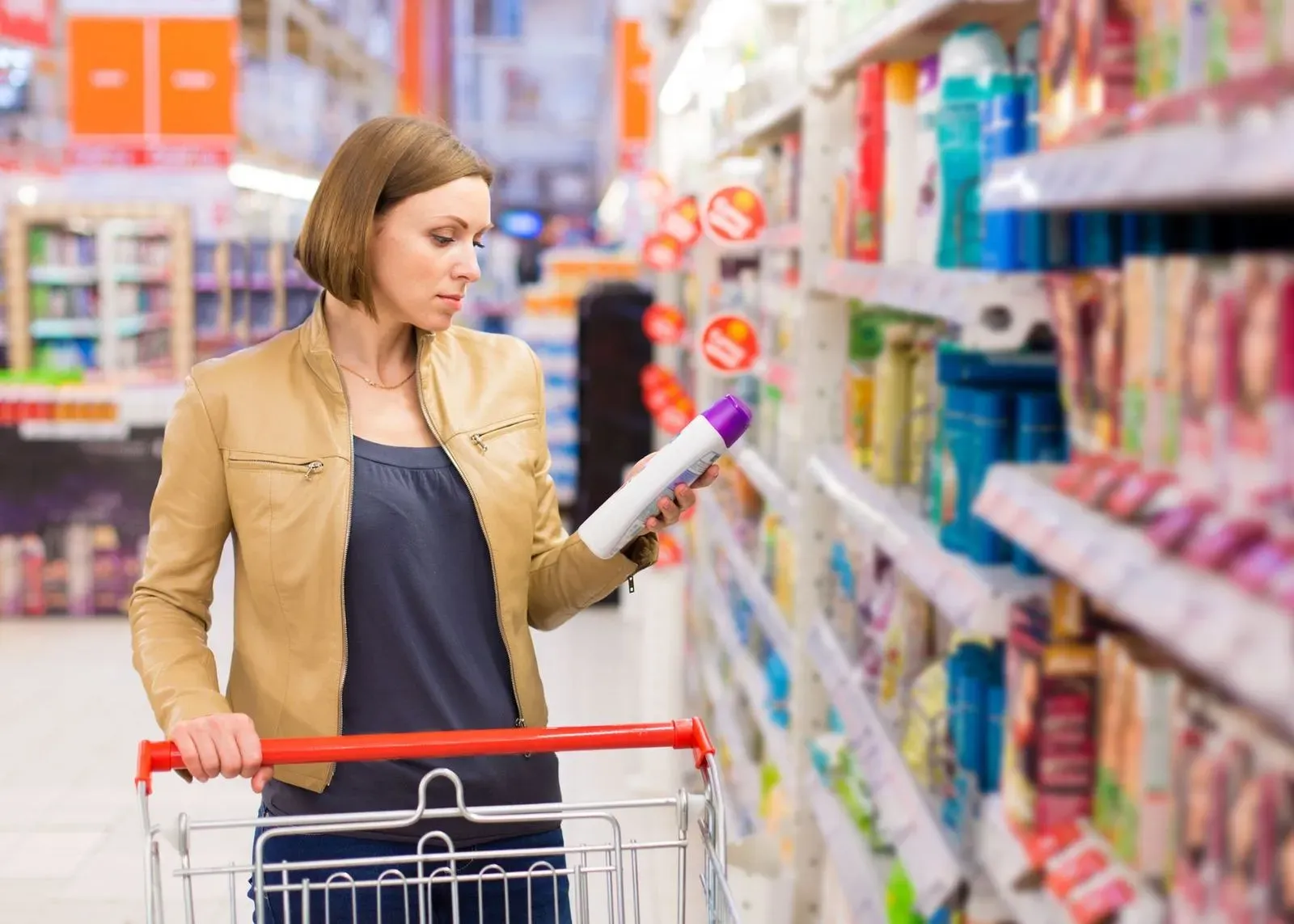
Experts suggest considering the age of the child and safety considerations for different hair types when deciding to switch from baby shampoo to normal shampoo. Let's take a complete look at all of these factors.
Expert Suggestions on Age for Using Normal Shampoo
Experts in the field of pediatric skincare and hygiene suggest there is no absolute age at which a child should start using normal shampoo. It largely depends upon individual children's hair and scalp needs, as well as their physical development.
Medical research advises keeping baby shampoo in use up until eight years of age at least to safeguard young scalps from potential irritations that adult shampoos might cause. Notably, some adults even prefer continuing with baby shampoo due to its gentle properties.
A transition may occur around four or five years old for many parents who introduce products such as Suave toddler shampoos and conditioners or Dove sensitive body wash, all designed specifically for younger users' unique requirements.
Safety Considerations for Different Hair Types
Different hair types require different safety considerations when it comes to using shampoo. For children with oily hair, it is important to choose a shampoo that helps control oil and prevents build-up.
Kids with dry or frizzy hair should use shampoos that provide extra moisture and hydration. Curly-haired children should opt for shampoos that help enhance and define their curls without causing any damage.
Parents of children with sensitive scalps should look for mild, fragrance-free shampoos that won't irritate the skin. It's also essential to use tear-free formulas to avoid discomfort during bath time.
Benefits of Using Baby Shampoo
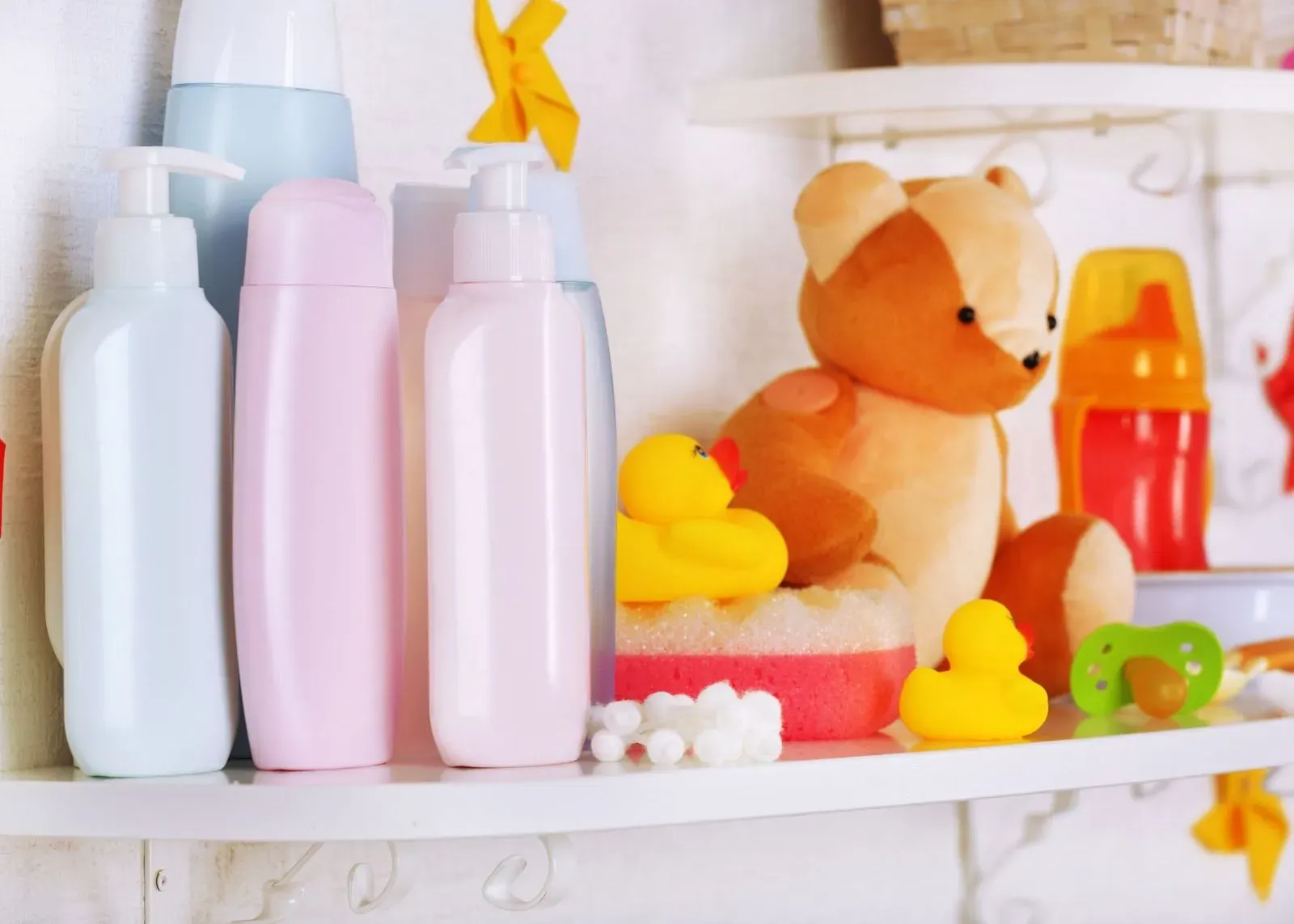
Baby shampoo has several benefits. It is gentle on sensitive skin and eyes while also maintaining the natural oils in the hair. Let's take a look at each of the benefits of using baby or kids shampoo:
Gentle on Sensitive Skin and Eyes
Baby shampoo is known for its gentle formula, making it suitable for children with sensitive skin and eyes. Unlike regular shampoos, baby shampoo is designed to be mild and tear-free, minimizing the risk of irritation or discomfort during bath time.
It maintains the natural oils in your child's hair while providing a gentle cleanse. Using a shampoo that is specifically formulated for babies and children can help ensure their safety and promote healthy hair care habits from an early age.
Maintains Natural Oils in The Hair
Using baby shampoo helps maintain the natural oils in your child's hair. Baby shampoos are specifically designed to be gentle and mild, ensuring that they don't strip away the natural oils that keep the hair healthy and moisturized.
This is especially important for young children whose scalps may still be developing and producing these natural oils. By using a shampoo that maintains these oils, you can help prevent dryness and keep your child's hair soft and manageable.
Signs Your Child is Ready for Normal Shampoo
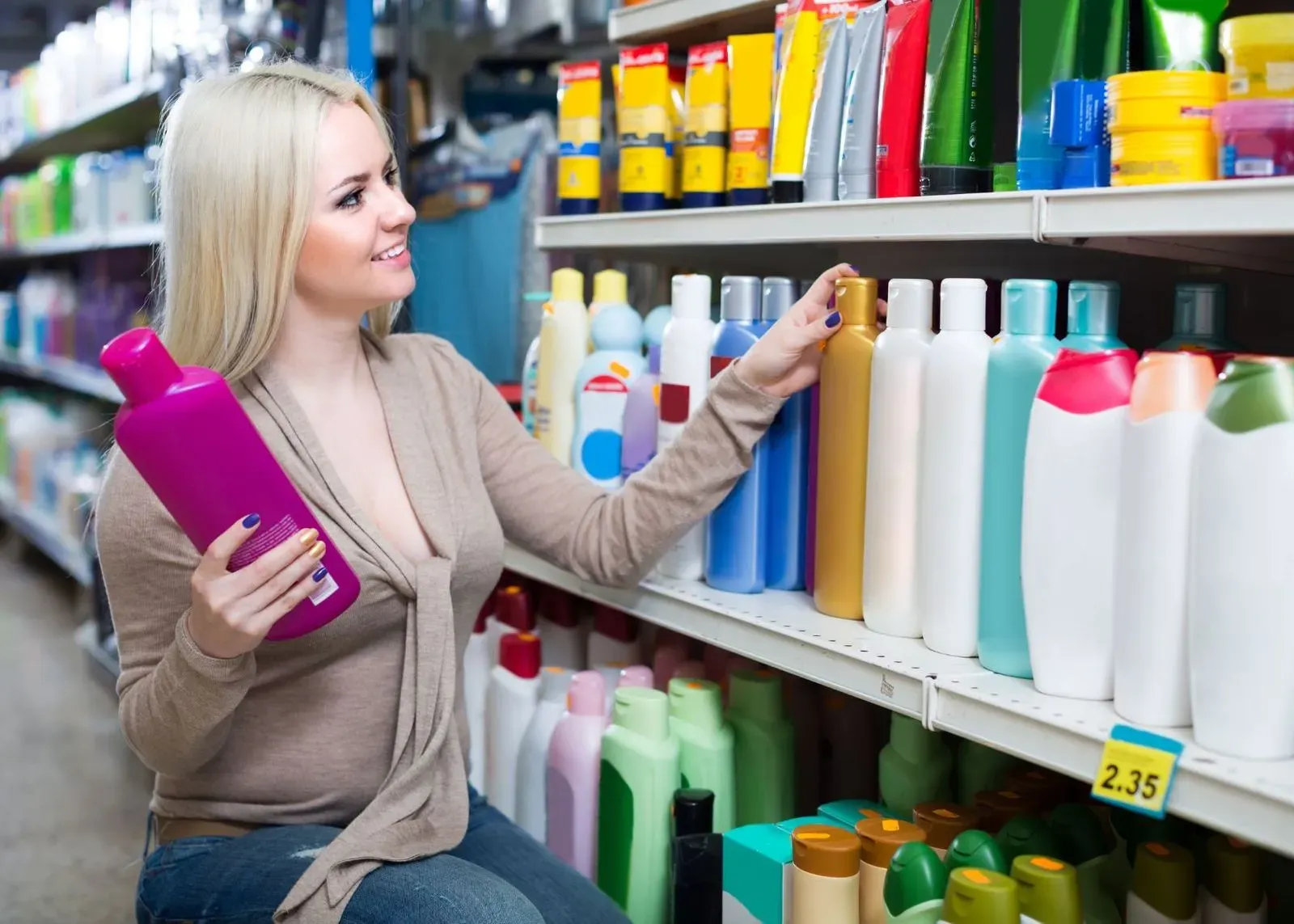
Some signs that indicate your child is ready to switch to normal shampoo include demonstrating independence in bathing, understanding how to rinse properly, and reaching a certain age as recommended by experts. Let's take a look at when to stop using baby shampoo.
Demonstrates Independence in Bathing
Children who demonstrate independence in bathing are often ready to start using normal shampoo. This means they can handle the process of washing their adult hair on their own, without constant supervision or assistance.
They understand how to apply and rinse out the shampoo properly, ensuring that it does not get into their eyes or irritate child's skin. While there is no specific age for this milestone, it generally occurs when children are around four or five years old.
At this stage, they have developed the motor skills necessary to wash and rinse their hair independently.
Understands How To Rinse Properly
Proper rinsing is an important skill for children when using shampoo. It involves thoroughly washing out the shampoo from their hair to avoid any residue or irritation. Children should be able to understand how to rinse their hair properly by around the age of four or five.
This includes knowing how long to rinse, using their hands or a cup to pour water over their head, and making sure all the shampoo is fully washed out. Teaching children proper rinsing techniques ensures that they can clean their hair effectively and maintain healthy scalp and hair hygiene.
Has Reached a Certain Age Recommended by Experts
Experts recommend that parents consider their child's age when deciding to switch to normal shampoo. At the same time, there is no specific age requirement; medical and experimental evidence suggests using baby shampoo until at least eight years old.
It is important to choose a mild and tear-free formula specifically designed for babies and children to ensure their safety and prevent any potential irritations. By considering the recommended age, parents can make an informed decision about when their child is ready for normal shampoo.
Choosing the Right Shampoo for Your Child
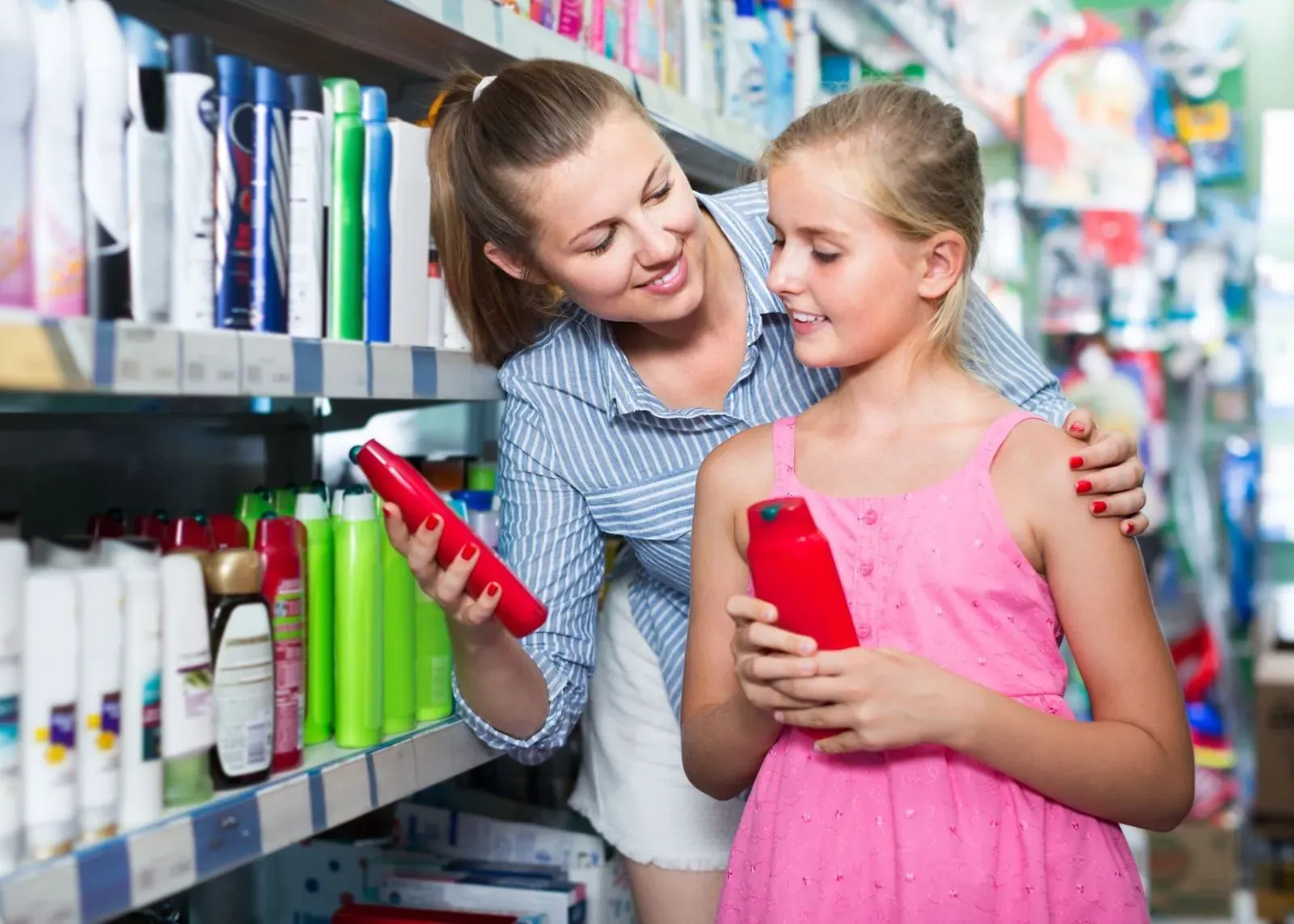
Look for mild and tear-free formulas that are suitable for your child's hair and scalp condition. Consider trusted brands for children's shampoo to ensure the safety and effectiveness of the product.
Look for Mild and Tear-Free Formulas
Choose a shampoo for your child that has mild and tear-free formulas. These types of shampoos are specifically designed to be gentle on their delicate skin and eyes, reducing the risk of irritation or discomfort during bathing.
Look for products labeled as "baby," "no more tears," or "children's" shampoo, as they are formulated to meet the unique needs of baby's hair and scalps. By opting for mild and tear-free formulas, you can ensure a safe and pleasant bath time experience for your child.
Consider the Child's Hair and Scalp Condition
The child's hair and scalp condition should be taken into consideration when choosing the right shampoo. Each child may have different needs, so it's important to select a shampoo that addresses their specific concerns.
Moreover, keep in mind if your kid has any scalp condition like cradle cap and always go with what your kid's pediatrics recommends to avoid chemicals on their fine hair.
For children with sensitive or dry scalps, using a mild and moisturizing shampoo can help nourish and soothe their skin.
If the child has thick or curly hair, opting for a shampoo that provides extra moisture and detangling properties can make bath time easier. You may need to understand how often your child needs his or her hair washed.
On the other hand, children with oily scalps may benefit from a clarifying shampoo that helps control excess oil. By considering the child's unique hair and scalp condition, you can ensure that they receive appropriate care during their bathing routine without any discomfort or irritation.
Trusted Brands for Children's Shampoo
- Johnson's Baby Shampoo
- Aveeno Baby Wash and Shampoo
- Mustela Gentle Cleansing Gel
- Cetaphil Baby Wash and Shampoo
- California Baby Super Sensitive Shampoo & Bodywash
- Earth Mama Simply Non-Scents Baby Wash
- Burt's Bees Baby Bee Shampoo and Wash
Frequently Asked Questions
Baby shampoo is specially formulated to be gentle on a child's scalp, eyes, and hair, but there comes a time when a kid is ready for the stronger cleansing ingredients found in regular shampoos.
These FAQs will provide tips to help parents determine when it is appropriate to transition a child from baby shampoo to adult shampoo.
What is the minimum age for a child to start using regular shampoo?
There isn't a specific minimum age, but children can typically switch from baby products to regular shampoo when they are old enough to bathe without assistance and close their eyes during rinsing.
At what age should I stop using baby shampoo on my child?
Making the switch from baby shampoo depends more on your child’s ability than their exact age. When your kid can effectively keep soap and water out of their eyes, it's generally safe to transition to normal shampoos.
Is adult shampoo safe for kids?
Adult shampoos can be used on children, but you should choose milder formulations if possible because kids' skin might react negatively to harsher ingredients present in some adult skincare products.
Can Diane Moist be used as kid-safe soap or shampoo?
Diane Moist, along with other brands, may offer kid-safe soaps and toothpaste suitable for younger users. Always check the product label recommendation before use.
How do I choose the right time for my child to switch from baby products like mild soap and kid's shampoo?
The appropriate time varies per individual, but once your child has developed enough motor skills to bathe independently, you could consider introducing them gradually to normal soap or even regular hair shampoo.
Does switching at an earlier stage cause any potential harm?
Switching early does not usually pose serious risks; however, it is recommended that parents monitor reactions closely after initial uses of new cosmetic formulations instead of traditional 'kid-friendly' ones.
Conclusion
Children can start using normal shampoo when they are old enough to bathe without assistance and know how to rinse properly.
While there is no specific age, it is generally recommended to use baby shampoo or shampoo designed for babies and children until at least the age of eight.
Always choose a mild formula that is tear-free and suitable for their hair and scalp needs. If you have some more related questions or some tips to share, feel free to leave a comment below.
Read More About Other Related Topics Of Your Interest
